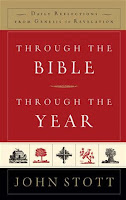Psalm 137
The Psalter opens with two psalms that set the horizon for all the other psalms that follow. Those horizons are torah meditation (psalm one) and messianic expectation (psalm two). The rest of the praying in the Psalter oscillates between these two horizons, like the Sun that rises in the East and sets in the West. Torah meditation is what makes us blessed (ashrey), people whose hearts are inclined to love and follow God. Torah gives us our orientation in this world. But this world is fallen and every orientation eventually gets shunted into disorientation. Life is full of disappointment and hardship. Messianic expectation is the necessary corrective because the Torah tends to be misread, misquoted, misunderstood and disobeyed, so that only God's true hearer of the Word can teach us how to (re-)appropriate it. This horizon helps re-orient us in our times of disorientation and the disappointment that life entails. The drama of all praying occurs between these two poles - as we are shaped into adequate conversation partners for the LORD God.
Psalm 137 is a three stanza prayer-poem of disorientation - indeed, radical disorientation. It is poem that oscillates between two cities: Babylon and Jerusalem. Jerusalem is the city of Israel's orientation, her "true north." Babylon is the city of disorientation, a place of exile. Stanza one specifies the setting as "by the rivers of Babylon." Babylon was rich in rivers and canals. The Greeks called it "Mesopotamia" meaning "in the midst of rivers." The Babylonian exile and the accompanying dislocation and humiliation which comes from being torn from one's home and house of worship is the background of this psalm. We are told this humiliation is exaggerated by her captors: "Sing us one of the songs of Zion" they taunt.
Stanza two examines the interior experience of exile, from the rivers of Babylon to the rivers of grief Israel feels:
"How shall we sing the Lord's song in a foreign land?
If I forget you, O Jerusalem, let my right hand forget its skill!"
Let my tongue stick to the roof of my mouth, if I don't remember you."
So far so good. But the really hard part occurs in the third and final stanza, where the focus is on the LORD and prayer is made to him. It is a prayer of retribution, especially the last and most shocking verse:
"Blessed shall he be who takes your little ones and dashes them against the rock!"
This is pure vengeance and undiluted hatred, a wish for retribution in kind: "May you get what you gave."
But it is also pure prayer - giving all of it up to God, the good, the bad and the ugly. The Psalter excells at giving us permision to say what is in us. Even more, it gives voice to what is in us. Maybe the Israelite exiles should be able to forgive those who raped their women, impaled their sons and bashed their babies against rocks. But they would never be able to if they did not have a place to send their rage and their hatred. God is the rock upon which Israel is invited to rage. God is the harbor against the storms of the soul.
True prayer never occurs if the worshipper is false before God. Praying our anger is the first step in giving it up to God in forgiveness.
Psalm 137 may not be a "model" prayer. But is certainly an honest prayer and an accurate portrayal of the human heart in the grip of great grief and pain And in that sense it is good example of how to pray. It is a hopeful prayer because it invites even our darkness into the conversation with Him who is light and in whom no darkness dwells. He is strong enough to absorb and heal all our darkness. This is what Psalm 137 invites us to do.

Tory, thanks for this take on Psalm 137. I really like the part about "true prayer never occurs if the worshipper is false before God." It really resonates with me, especially as I dealt with my grandson's death. God is big enough to handle our rage and through it He will bring us to a place of hope and comfort as long as we stay engaged with Him in conversation.
ReplyDelete"He is strong enough to absorb and heal all our darkness."
ReplyDeleteAnd therein lies our hope. What a kind and strong and merciful God we serve. Not only is He NOT surprised or repulsed by our darkness - He is ever willing and ready to run into the heart of it and rescue us from it. Amazing Love, how can it be?